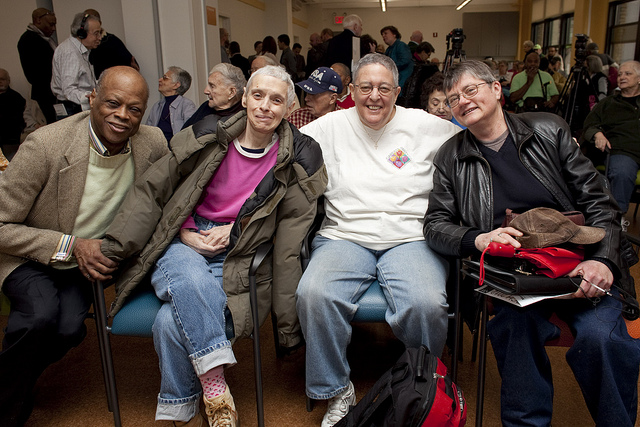
At 81, George Stewart has been a longtime advocate for lesbian, gay, bisexual and transgender (LGBT) older people in New York City. He’s a former Army clerk and U.S. Air Force court reporter, and last summer he was selected by the White House as one of six Champions of Change nationwide for LGBT Pride Month. Yet behind his active civic life and national profile lies another reality: George Stewart is low income, and as with millions of older people, he relies on federal assistance to supplement his income and on local services for community support. For many low-income LGBT older people, public assistance and support networks interlock as lifelines — ameliorating poverty, reducing isolation and helping to manage the slew of challenges that come with getting older. Unfortunately, despite the prevalence of poverty among elders in this country, including LGBT elders, these realities are rarely brought to light.
Read my recent editorial in The Huffington Post about how poverty challenges worsen with age for LGBT older people. You can also read it on the SAGE Blog.
Robert Espinoza is the Senior Director for Public Policy and Communications at Services and Advocacy for GLBT Elders (SAGE). The opinions expressed in this article are those of the author and do not necessarily reflect those of the Diverse Elders Coalition.

